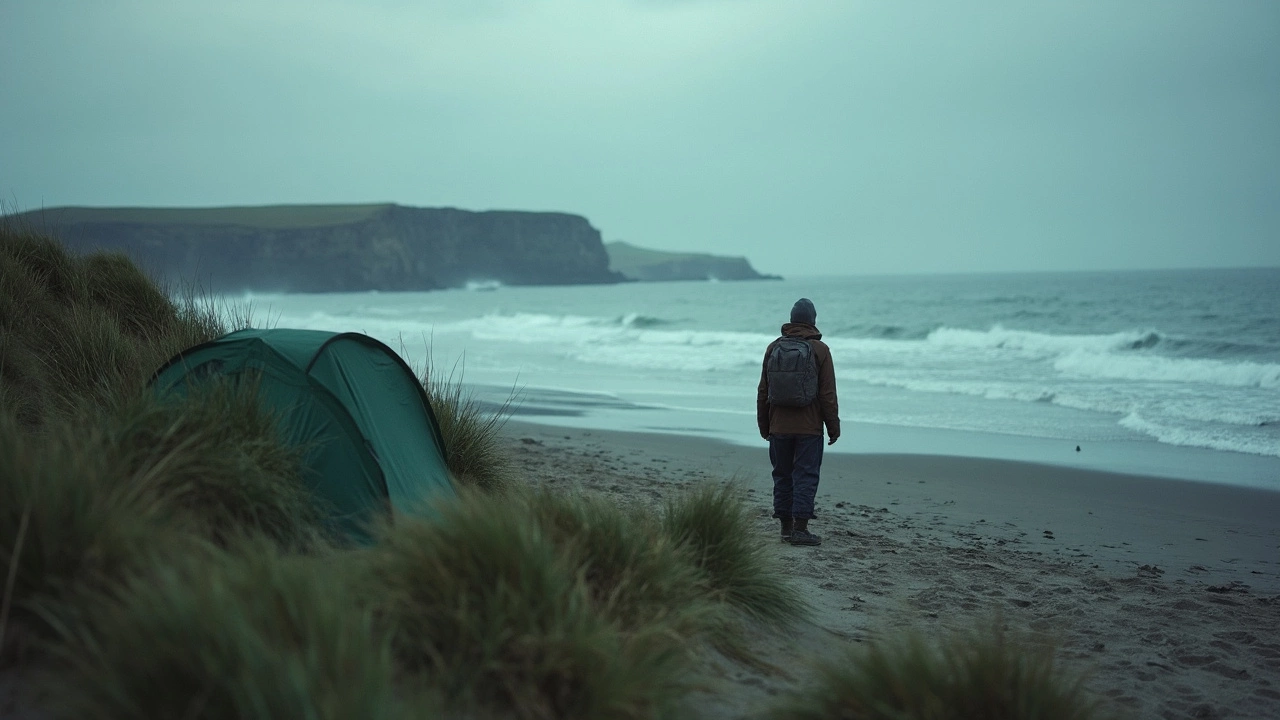Beach Camping England: Where to Pitch, What to Know, and How to Enjoy
Ever wanted to fall asleep to the sound of waves crashing and wake up with salty air on your face? England’s coastline has dozens of spots where you can set up a tent, park a motorhome, or just spread a blanket on the sand. The trick is knowing which beaches actually allow camping and how to do it without getting a fine.
Legal basics you can’t ignore
Most English beaches are owned by local councils or private landowners, so you can’t just pitch a tent wherever you like. The easiest way to stay legal is to look for designated campsites that sit right on the beach – places like Whitby’s Pier Campsite, Porthcawl Bay, or the Christchurch Beach Holiday Park. These sites have the right permits, waste facilities, and often a small fee.
If you find a spot with no official campsite, check the local council’s bylaws. In many areas, “no overnight stay” signs are posted, and breaking them can lead to fines up to £500. Some coastal towns offer a “wild camping” grace period of a few hours for a quick nap, but it’s rarely for a full night.
Top beach camping spots in England
1. Whitby, North Yorkshire – The historic harbour has a small sandy stretch where a handful of pitches are available. You get sea views, a nearby pub, and easy access to the famous Whitby Abbey.
2. Porthcawl, South Wales (just over the border but worth a mention) – Offers a well‑maintained campsite right on the sand, complete with showers and electric hookups.
3. Frinton-on-Sea, Essex – A quiet beach with a few private pitches. The area is perfect for families who want a gentle tide and plenty of space for kids.
4. St. Ives, Cornwall – The official campsite sits on a crescent of sand, and you’re minutes away from the town’s art galleries and fish and chips.
5. Hornsea, East Yorkshire – Free “wild” spots exist if you stay under the dunes and respect the environment. Arrive early, set up low‑impact gear, and leave no trace.
All these sites share a common rule: pack out what you bring in. Use biodegradable soap, keep fires in provided pits, and don’t disturb wildlife.
Practical tips for a smooth seaside stay
Gear up for sand – Choose a tent with a good groundsheet. Sand can seep through cheap fabrics and make the inside gritty. A small tarp under the tent helps keep the floor clean.
Watch the tide – Tides can rise fast on Atlantic‑facing beaches. Check tide tables on a phone app and set up the tent a safe distance from the water line.
Stay cool – Even in summer, sea breezes can be chilly at night. Bring a warm sleeping bag rated for 5°C and a wind‑proof tarp.
Plan your waste – Most beach campsites have limited bins. Pack a portable toilet or a waste bag and empty it at the nearest landfill.
Know the emergency numbers – If you’re in a remote spot, a mobile signal might drop. Have the local coastguard number handy, and consider a basic first‑aid kit.
With the right spot, a bit of research, and some smart packing, beach camping in England can be one of the most rewarding ways to explore the coast. Pack your gear, respect the rules, and enjoy the sunrise over the sea – you’ve earned it.
Wild Camping on England’s Beaches: What You Need to Know
Curious whether you can pitch a tent and wild camp on English beaches? This article digs into the real rules, the risk of being moved on by authorities, and where people actually manage to pull it off. You’ll also find practical tips on blending in, dealing with tides, and not angering the locals. Get the facts before your next seaside adventure. Avoid surprises and keep things legal (or at least low-key).
